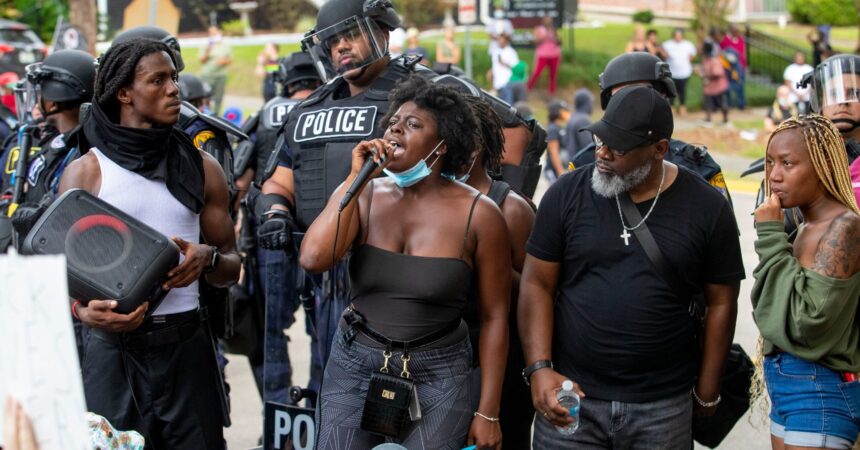
Judge questions state over protest law

Photo by Vaughn Wilson
By Dara Kam
News Service of Florida
A federal judge tangled last Monday with lawyers for the state over a controversial law — one of Gov. Ron DeSantis’ top legislative priorities — that enhances penalties and creates new crimes in protests that turn violent.
The Dream Defenders, the Florida State Conference of the NAACP and other organizations allege in a lawsuit that the measure, approved by Republican legislators and signed by DeSantis this spring, is unconstitutionally vague, has a “chilling” effect on First Amendment rights and gives local police too much power.
Chief U.S. District Judge Mark Walker held a hearing last Monday to consider the plaintiffs’ request for a preliminary injunction to block local law enforcement officials from enforcing certain portions of the law.
Plaintiffs’ lawyers argue, in part, that the measure — known as HB 1 — puts peaceful protesters at risk of being arrested at rallies that turn violent, even if they don’t participate in any wrongdoing.
“We’re dealing with a credible threat of enforcement of a vague and overbroad law, which has effectively paralyzed the core mission of these organizations for social impact that we represent,” Matthew Gaston, a lawyer for the American Civil Liberties Union of Florida, told Walker. “We’re not talking about some vague amorphous impact. The freedom to assemble and protest strike at the heart of what our plaintiffs’ work is.”
But Nicholas Meros, a deputy general counsel for DeSantis, said the plaintiffs “have shown no concrete evidence of such chilling” and thus lack “standing” to challenge the law.
“They have provided no concrete evidence of any specific protests or any specific dates on which they have canceled protests because of this act,” he said.
Also, Meros argued that the plaintiffs waited too long to request a preliminary injunction in the lawsuit, which was filed on May 11, less than a month after DeSantis signed the bill into law. The motion for a preliminary injunction was filed on July 14.
But Walker grilled Meros about prior court decisions establishing that plaintiffs can seek “pre-enforcement” actions in legal challenges involving First Amendment rights.
“For pre-enforcement action in this case, they’d have to have affidavits or declarations that would say, ‘We plan on protesting in X city, and we have a reason to believe that the Proud Boys are going to show up as counter protesters and turn it violent … for them to have standing?’” Walker asked.
“To an extent, yes sir, they would. They would have to show that they were having protests on these days and they have canceled these protests because of HB 1. They would also have to show what specifically about HB 1 is actually chilling them,” Meros said.







